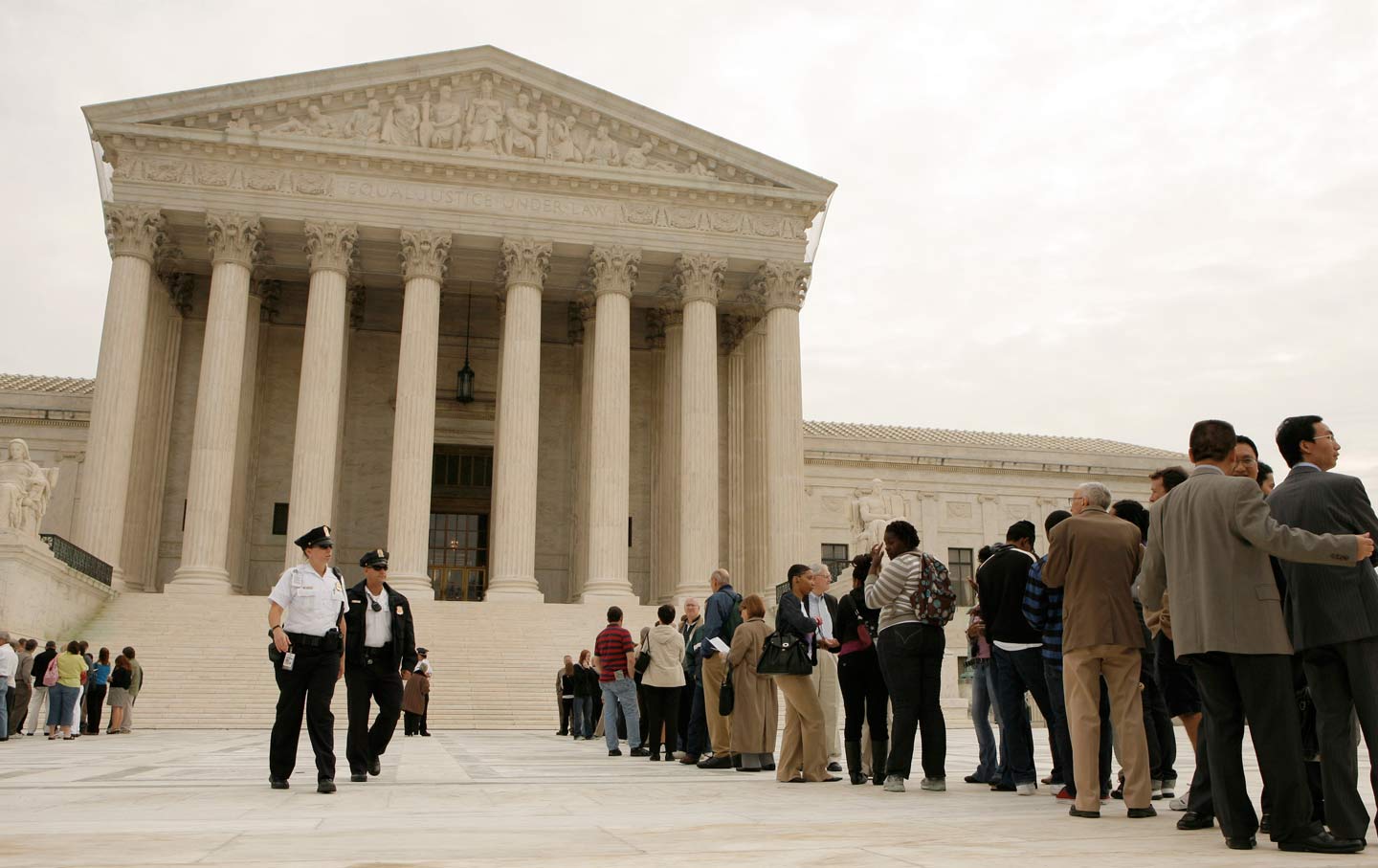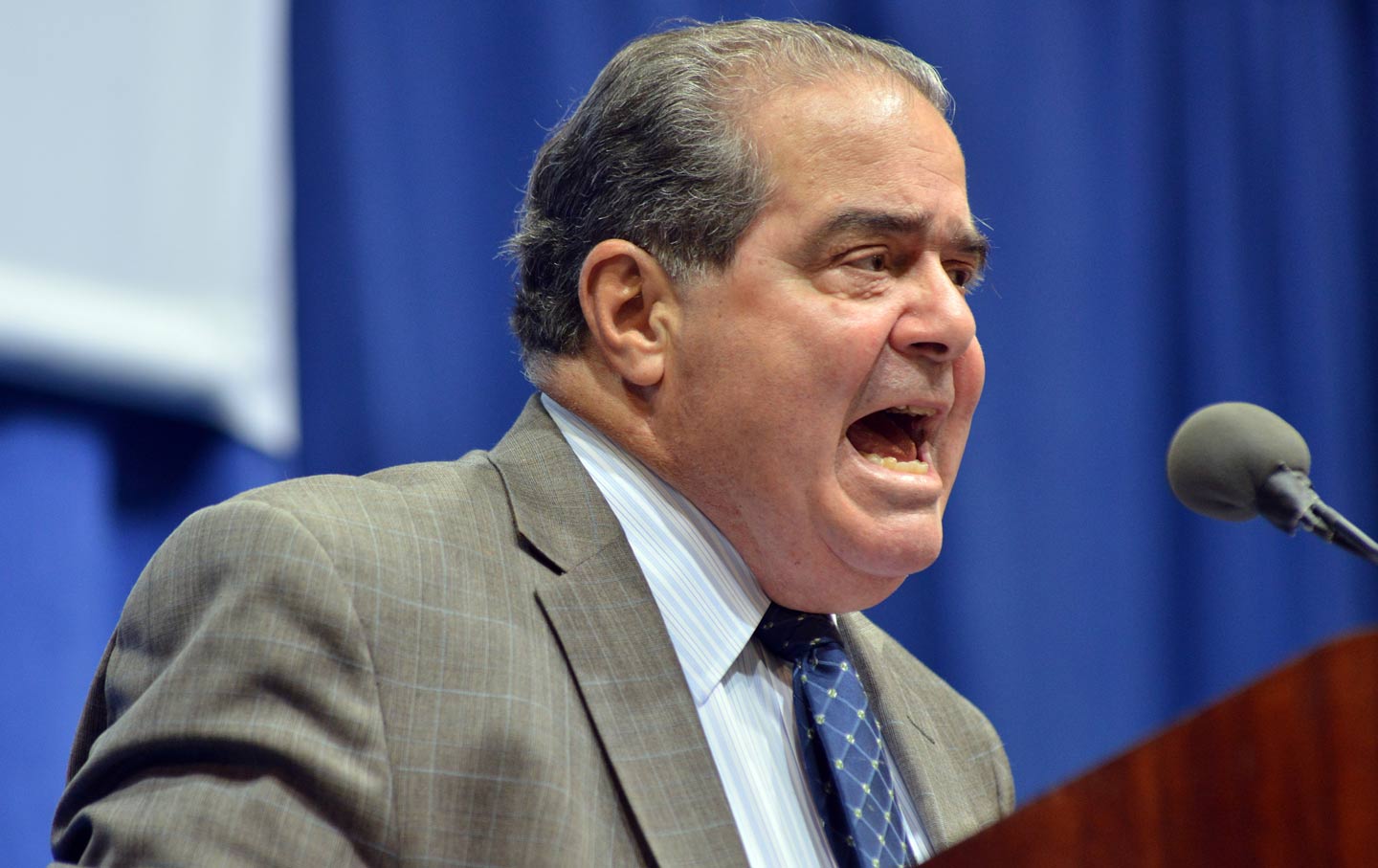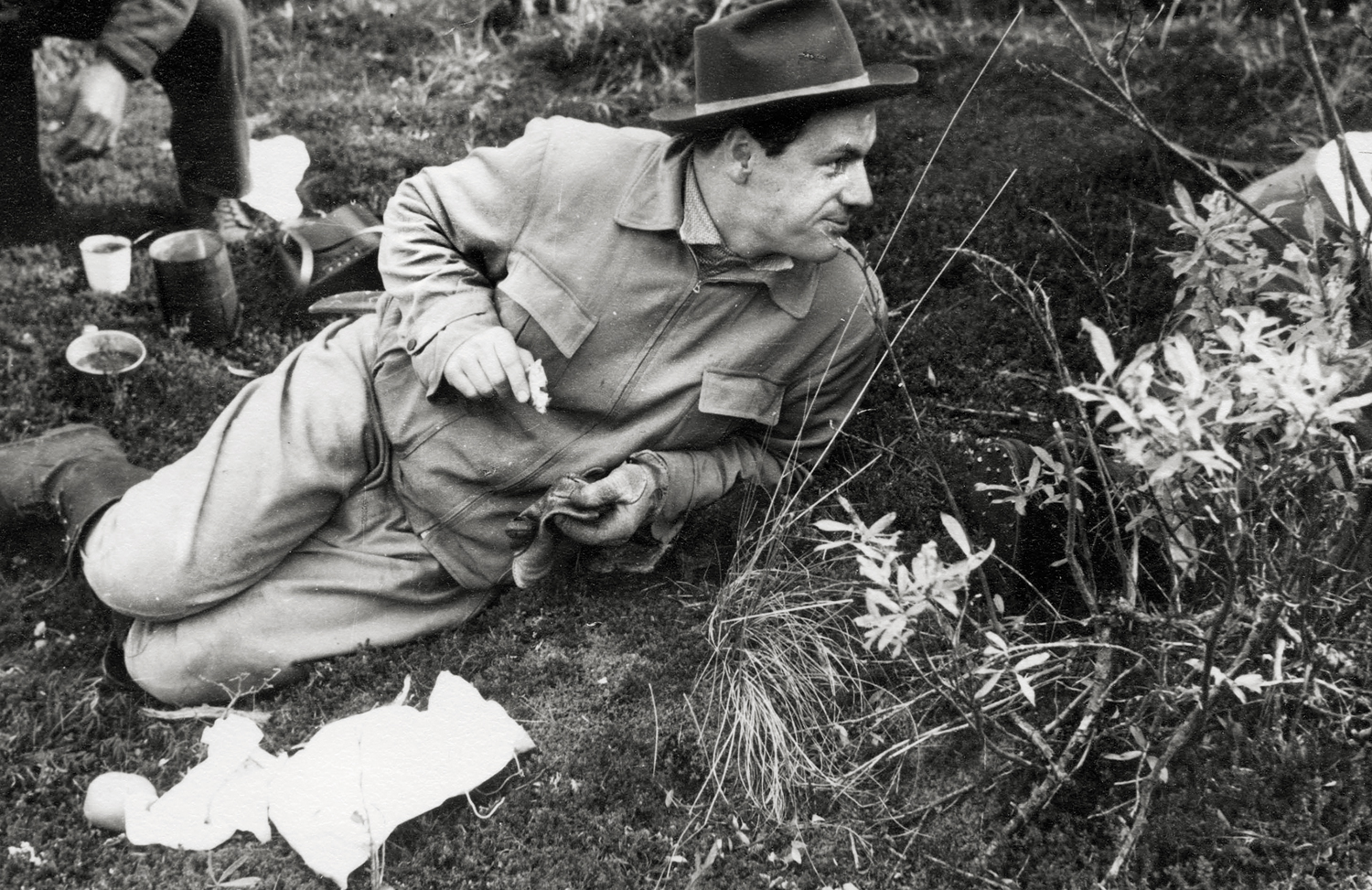
Is the Supreme Court’s Role Overstated? Is the Supreme Court’s Role Overstated?
In Engines of Liberty, David Cole trains a light on civil society as a more reliable agent of constitutional change.
Jun 3, 2016 / Books & the Arts / Michael O’Donnell

What’s the Point of a Supreme Court Dissent? What’s the Point of a Supreme Court Dissent?
A recent book shows that, before Antonin Scalia, dissents were valuable to the Court. Now they may be endangering the institution.
Jan 21, 2016 / Books & the Arts / Michael O’Donnell

Fortune’s Son Fortune’s Son
Why the line from Barry Goldwater to Ted Cruz runs over Nelson Rockefeller.
Feb 4, 2015 / Books & the Arts / Michael O’Donnell
Letters Letters
Water Theft Pie Town, N.M. I live sixty miles west of Magdalena, New Mexico, mentioned in Sasha Abramsky’s “Dust Bowl Blues” [Aug. 5/12] as being out of water. To some, scarcity translates as dollar signs. One such water-grab attempt is an application to the state by an Italian-owned corporation for a permit to pump 17 billion gallons of water a year from the aquifer between here and Magdalena. That aquifer does not recharge at anything remotely resembling such a rate. Corporate bafflegab notwithstanding, what this would do is enable corporate owners to usurp a scarce public resource and sell it to upscale developers and water-intensive industries in the Albuquerque area. The state could thus release more Rio Grande water downstream to satisfy New Mexico’s legal obligation to Texas. One of the bases of New Mexico water law is beneficial use. The question currently in a battle of words and law is what “beneficial use” means. Does a viable local economy and ecology have value? Or is whatever use generates the most near-term “economic growth,” as corporate profit and tax base, the sole criterion? This issue has people politically opposed to each other fighting on the same side against the corporate plunder of our homes (see sanaugustinwatercoalition.org). UNCLE RIVER Roberts Court: “Crimes & Misdemeanors” Canonsburg, Pa. Michael O’Donnell, in “Roberts’s Rules of Order” [July 8/15], concludes by saying it is better to abide by the horrible rulings of the Roberts Court than to mess with settled law. But there are times when precedents need to be broken lest horribly unjust decisions are allowed to impose injustice on millions of oppressed Americans. One thinks of the Dred Scott case, Plessy v. Ferguson, Bush v. Gore, Citizens United and other sordid Court opinions— many already in this new century—that have had a disastrous impact on blacks, women, Asians and the working class. DAVID W. SOUTHERN Newton, Mass. I take issue with Michael O’Donnell’s bizarre conclusion, after his perceptive summary of the Roberts Court’s crimes and misdemeanors, that liberals have to accept the subversive undoing of our Constitution in the name of precedent! Is he serious when he admonishes us that “the tougher but better path is to accept the bad decisions as the law of the land” because, if a hypothetical liberal majority reverses them in the future, the Court will appear political? Hasn’t he read his own indictment of the Court as the enforcer of a far-right agenda? I’m disappointed that The Nation would run so important a critique, but with so defeatist and resigned a punch line. MARK S. BRODIN, professor and Lee Distinguished Scholar, Boston College Law School O’Donnell Replies Evanston, Ill. I agree with David W. Southern that the Supreme Court has an obligation to correct an egregious misinterpretation of the Constitution. I disagree, however, with Professor Brodin—a respected and beloved figure at my law school alma mater. He suggests that I am resigned to a Court that issues right-wing opinions. But he seems resigned to a Court filled with political stooges. He is free to join the likes of Justices Roberts, Scalia, Kennedy, Thomas and Alito, who swing the wrecking ball at disfavored decisions as soon as they have five votes. For my part, I find the Roberts Court’s disregard for precedent immensely troubling and a poor example to follow. I would prefer a Court that respects the rule of law, even if that means accepting wrongheaded judgments from time to time. If I err in my thinking, it is because I am idealistic about the Court—not defeatist. MICHAEL O’DONNELL
Sep 4, 2013 / Our Readers and Michael O’Donnell

Roberts’s Rules of Order Roberts’s Rules of Order
Marcia Coyle’s damning study of the Roberts Court’s conservative agenda.
Jun 18, 2013 / Books & the Arts / Michael O’Donnell
Off-Key: On Paul Elie Off-Key: On Paul Elie
Can recordings of classical music ever be in concert with concert hall performances?
Dec 31, 2012 / Books & the Arts / Michael O’Donnell
Raw Judicial Power: On William Rehnquist Raw Judicial Power: On William Rehnquist
The Partisan is a weak account of the career and legal thinking of a conservative and obstreperous chief justice.
Oct 3, 2012 / Books & the Arts / Michael O’Donnell

From ‘Brown’ to ‘Lawrence’: On the Struggle for Gay Civil Rights From ‘Brown’ to ‘Lawrence’: On the Struggle for Gay Civil Rights
Dale Carpenter's exceptional account of the history of Lawrence v. Texas.
Mar 27, 2012 / Books & the Arts / Michael O’Donnell

Crime and Punishment: On William Stuntz Crime and Punishment: On William Stuntz
A lack of local democracy and equal protection has led to the collapse of the American criminal justice system.
Jan 11, 2012 / Books & the Arts / Michael O’Donnell
Shostakovich’s Ambivalence Shostakovich’s Ambivalence
The musical and political strands of Dmitri Shostakovich's life were intertwined like the braids of a noose.
Apr 21, 2011 / Books & the Arts / Michael O’Donnell
